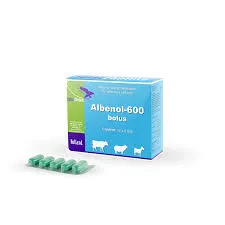- Afrikaans
- Albanian
- Amharic
- Arabic
- Armenian
- Azerbaijani
- Basque
- Belarusian
- Bengali
- Bosnian
- Bulgarian
- Catalan
- Cebuano
- Corsican
- Croatian
- Czech
- Danish
- Dutch
- English
- Esperanto
- Estonian
- Finnish
- French
- Frisian
- Galician
- Georgian
- German
- Greek
- Gujarati
- Haitian Creole
- hausa
- hawaiian
- Hebrew
- Hindi
- Miao
- Hungarian
- Icelandic
- igbo
- Indonesian
- irish
- Italian
- Japanese
- Javanese
- Kannada
- kazakh
- Khmer
- Rwandese
- Korean
- Kurdish
- Kyrgyz
- Lao
- Latin
- Latvian
- Lithuanian
- Luxembourgish
- Macedonian
- Malgashi
- Malay
- Malayalam
- Maltese
- Maori
- Marathi
- Mongolian
- Myanmar
- Nepali
- Norwegian
- Norwegian
- Occitan
- Pashto
- Persian
- Polish
- Portuguese
- Punjabi
- Romanian
- Russian
- Samoan
- Scottish Gaelic
- Serbian
- Sesotho
- Shona
- Sindhi
- Sinhala
- Slovak
- Slovenian
- Somali
- Spanish
- Sundanese
- Swahili
- Swedish
- Tagalog
- Tajik
- Tamil
- Tatar
- Telugu
- Thai
- Turkish
- Turkmen
- Ukrainian
- Urdu
- Uighur
- Uzbek
- Vietnamese
- Welsh
- Bantu
- Yiddish
- Yoruba
- Zulu
Նյմ . 21, 2024 09:22 Back to list
sulfaquinoxaline sodium
Sulfaquinoxaline Sodium An Overview
Sulfaquinoxaline sodium is a sulfonamide antibacterial agent primarily used in veterinary medicine. As part of the sulfonamide family, it exhibits a broad spectrum of antibacterial activity by inhibiting the synthesis of folic acid in bacteria, which is critical for their growth and replication. This chemical compound has been widely utilized in the treatment of coccidiosis, a parasitic disease that affects the intestinal tract of various animal species, especially poultry.
One of the main advantages of sulfaquinoxaline sodium is its efficacy in controlling infectious diseases in livestock. It has been particularly beneficial in the poultry industry, where it helps reduce the severity and mortality associated with coccidiosis outbreaks. The drug is often used in conjunction with other medications in feed formulations or administered in water to ensure adequate dosage and effective treatment.
The pharmacokinetics of sulfaquinoxaline sodium reveals its rapid absorption and distribution within the body
. After administration, it is quickly taken up by the gastrointestinal tract, leading to effective plasma levels. The medication is metabolized primarily in the liver and is excreted through the urine, making it relatively efficient for treating infections. However, it is important to adhere to recommended dosages to prevent the development of antibiotic resistance, which is a growing concern in both human and veterinary medicine.sulfaquinoxaline sodium

Despite its benefits, the use of sulfaquinoxaline sodium is subject to careful regulation. Safety and withdrawal times must be observed to prevent the presence of residues in animal products, which could pose health risks to consumers. This aspect is crucial as regulatory bodies in various countries have established guidelines to ensure food safety. Therefore, veterinary practitioners must be diligent in their application of this drug, ensuring proper withdrawal periods before animals are sent for processing.
Moreover, sulfaquinoxaline sodium serves as a vital research tool in studying antimicrobial resistance. Investigating how bacteria respond to sulfaquinoxaline sodium helps researchers understand the mechanisms of resistance and develop strategies to combat infections more effectively.
In summary, sulfaquinoxaline sodium remains an essential component of veterinary medicine for managing bacterial infections, particularly in poultry. Its role in controlling coccidiosis and maintaining the health of livestock cannot be understated. However, responsible use is paramount in mitigating risks associated with antibiotic resistance and ensuring food safety. As research into veterinary pharmaceuticals continues to evolve, sulfaquinoxaline sodium will likely remain a key player in the effective management of animal health.
-
Guide to Oxytetracycline Injection
NewsMar.27,2025
-
Guide to Colistin Sulphate
NewsMar.27,2025
-
Gentamicin Sulfate: Uses, Price, And Key Information
NewsMar.27,2025
-
Enrofloxacin Injection: Uses, Price, And Supplier Information
NewsMar.27,2025
-
Dexamethasone Sodium Phosphate Injection: Uses, Price, And Key Information
NewsMar.27,2025
-
Albendazole Tablet: Uses, Dosage, Cost, And Key Information
NewsMar.27,2025













